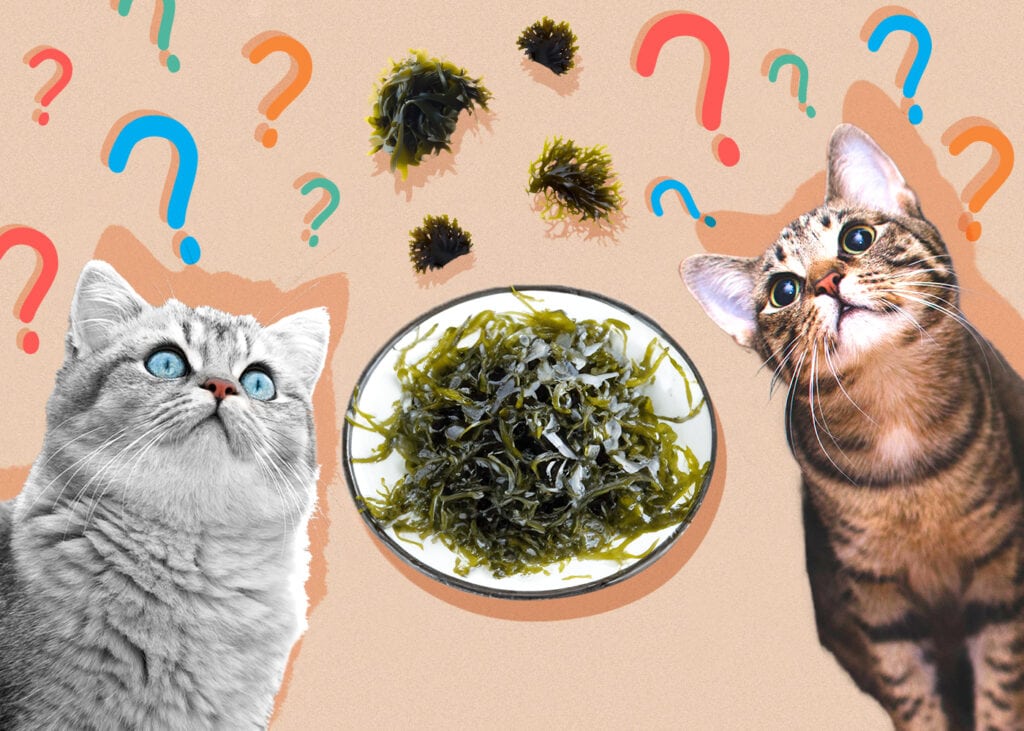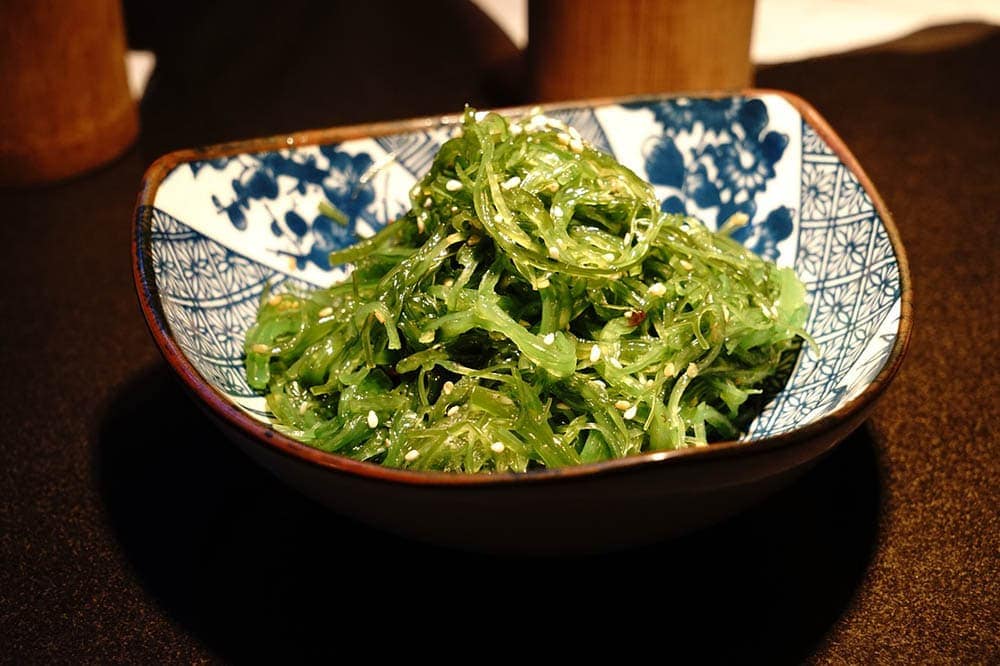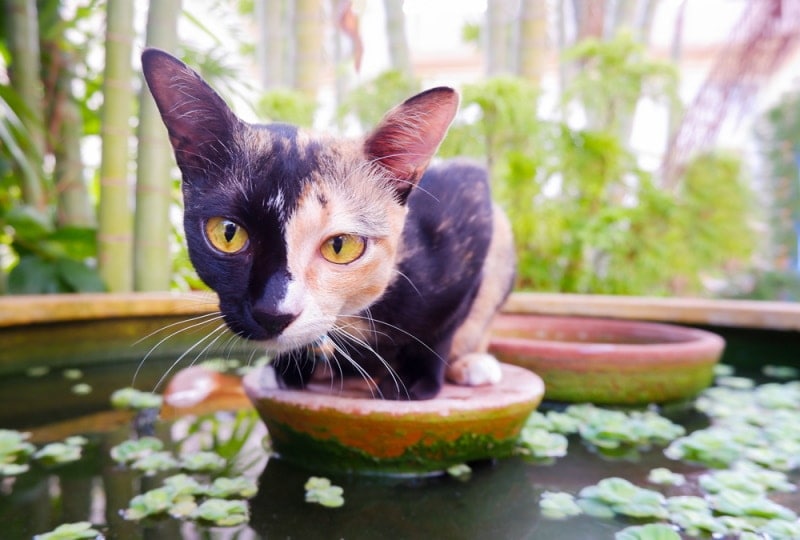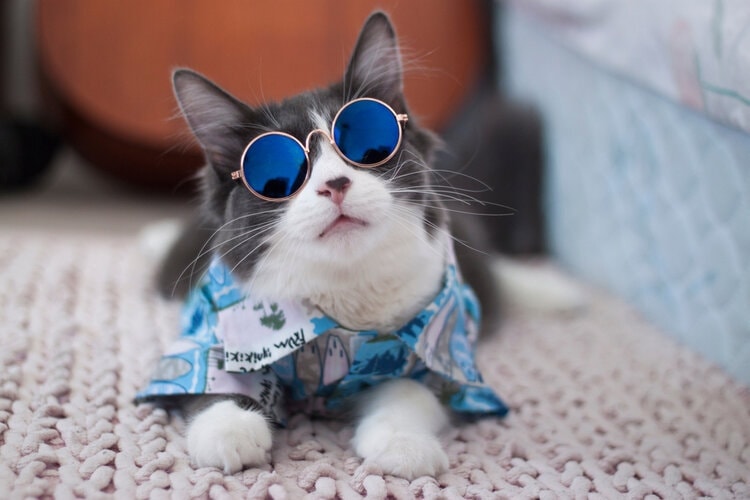Can Cats Eat Seaweed? Nutrition Facts & FAQ

Updated on

Seaweed is a densely packed superfood that is great for a variety of pets, including cats. Even though cats don’t need seaweed to be healthy, a little bit can be beneficial. At the same time, seaweed is dangerous for cats in high quantities due to the prevalence of iodine.
As a result, it’s best to be careful when it comes to letting your cat eat seaweed. Although you don’t have to worry if your cat takes a bite of your sushi when you aren’t looking, it’s best not to give it seaweed frequently. Keep reading for more.
Can Cats Eat Seaweed?
Technically speaking, cats can eat seaweed. Seaweed does not contain any outright dangerous or harmful ingredients to cats. In fact, many of the ingredients within seaweed are beneficial for your cat’s health and well-being.

Should Cats Eat Seaweed?
Can cats eat seaweed and should cat eat seaweed are two separate questions. Unfortunately, the latter is much more difficult to answer. Because seaweed does contain some great ingredients for your cat’s health, feeding seaweed to your cat in moderation can be beneficial.
For example, seaweed has nutrients and bioactive compounds that improve your cat’s gut health, coating, and free radical damage. This means that a little bit of seaweed can do a lot of good for your feline friend.
However, seaweed can also be dangerous. Cats are sensitive to high amounts of iodine, and there is quite a bit of it in seaweed. If cats ingest too much iodine, they can develop hyperthyroidism. Certain breeds are more prone to hyperthyroidism from iodine than others. Burmese, Abyssinian, Persian, and Himalayan breeds have lower reports of hyperthyroidism.

How To Feed Seaweed to Your Cat
Because seaweed has both benefits and drawbacks, it’s ultimately up to you whether you feed seaweed to your cat. If you decide that you want to feed your cat seaweed, make sure only to provide it in small amounts so that your cat doesn’t develop hyperthyroidism. Viewing seaweed as the occasional treat or supplement is the best way to think about it.
Additionally, ensure that the seaweed you’re feeding to your cat is human grade. In other words, don’t just pick seaweed up from the ground and expect it to be healthy for your cat. Instead, select plain seaweed that is designed for human consumption.
Lastly, be sure to only use seaweed as a supplement to your cat’s diet. Your cat’s diet should be primarily made from protein and cat food. Seaweed is a terrible long-term food solution or diet replacement. So, don’t feed it to your cat in this way.
Alternatives To Seaweed
To ensure that your cat stays as healthy as possible, it’s probably best to avoid seaweed. After all, there are tons of other ingredients and supplements you can provide your cat that offer the same benefits as seaweed without the drawbacks.
For example, the BIXBI Organic Pet Superfood Joints Daily Dog & Cat Supplement is a great alternative. It is packed full of antioxidants from the natural eggshell membrane to fight inflammation, reduce joint pain, and fight free radical damage. Likewise, the Zesty Paws Core Elements Wild Alaskan Salmon Oil Liquid Skin & Coat Supplement improves its coat and aids its digestive system.
If you aren’t sure what supplement to feed your cat, talk to your vet. Your vet will give you advice about what supplements are best for your cat individually.
Now that you know what you can safely feed your cat, it’s just as important to find a bowl that supports their health and well-being. With whisker-friendly bowls and a wide tray to catch any spills, our Hepper NomNom Cat Bowl is our favorite option.
Final Thoughts
At the end of the day, cats can eat seaweed. Seaweed in small doses can actually be very beneficial to your cat, but seaweed in large doses can lead to hyperthyroidism. Allowing your cat to eat seaweed on occasion is a great way to ensure it gets all the nutrients it needs. Just make sure you don’t overfeed the lead to your cat.
If you are nervous about your cat developing hyperthyroidism or if your cat is predisposed to it, opt for a supplement instead. Supplements specifically designed for cats will be low in iodine so that they don’t run the same risks as seaweed.
Featured Image Credit: kar0329, Pixabay











